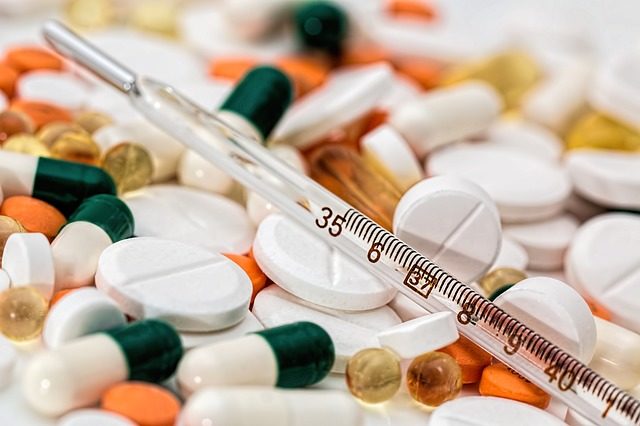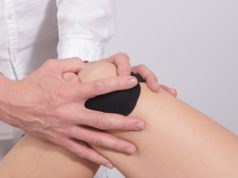If you’re one to choose to buy a bottle of cough medicine rather than going to your doctor, you should be aware of the types of OTC medicines that tend to be more addictive than others. While taking these medications per the package instructions will not cause you to become addicted, using more than the prescribed dosage can lead to euphoric highs which can become addictive. You can be addicted to your medicine cabinet!
Cough Meds
Cough medicines with dextromethorphan can cause hallucinations when too high a dose is taken. Brands like DayQuil, Robitussin, and Delsym all have some products that include dextromethorphan. Cough medicines popular among younger people because they’re easily accessible in a home’s medicine cabinet. You can identify too high a dose of symptoms like a rapid heart rate, vomiting, shakiness, and blurred vision. Continuous abuse of cough medicine can lead to brain damage.
Cold Meds
Cold medicines with pseudoephedrine can also be addictive when abused. Sudafed is the leading brand which produces medicine with pseudoephedrine. Pseudoephedrine is a stimulant which can cause bodily highs when taken in high doses. Those who abuse pseudoephedrine might find they have shortness of breath, an irregular heartbeat, high blood pressure, dizziness or seizures.
Pain and Motions Sickness Meds
While not quite as addictive as their prescription counterparts, acetaminophen painkillers taken in above-recommended doses can lead to serious health problems like permanent liver damage. Other side effects include sweating, nausea, stomach pain, and diarrhea. The most commonly known acetaminophen painkiller is Tylenol, but you can find it in other painkillers as well.
Lastly, motion sickness pills with dimenhydrinate can also lead to addiction. In high doses, dimenhydrinate can cause hallucinations, irregular heartbeat, seizures, ringing in the ears, nausea, coma, and, in extreme doses, death. People often abuse the drug to feel its psychedelic effects. Dramamine and Gravol are the two most common dimenhydrinate medicines.
Recognizing OTC Addiction
While abusing OTC drugs can cause the types of symptoms we mentioned above, continued abuse of those drugs can cause an alteration in the brain’s chemistry over time. This is because the body and brain build a tolerance to the drug, meaning an abuser needs to take higher and higher doses to achieve the same euphoric effect.
Sometimes OTC drug abuse can also lead to a person developing withdrawal symptoms like confusion, anxiety, mood changes, and hostility. Withdrawal symptoms can be an indication to family members that a loved one is addicted to OTC medications or something else. Other addiction symptoms include spending a lot of time or money trying to get their hands on their chosen drug, not meeting obligations at work or in social life, and displaying other risky behaviors.
Know When It’s Time To Detox
Whether you come to realize you’re addicted to an OTC medication, or you think someone in your family is, you should know when it’s time to discuss detoxing or rehab to get over OTC addiction.
For milder addictions that are just forming, a lighter detox method might be appropriate. The purpose of a lighter detox is to stop using the drug and get the small amount out of your body. While your body rids itself of toxins by itself, you can help it out by eating a well-balanced diet and drinking plenty of water. Some people like to pursue a green tea detox or a juice cleanse to help the process along.
In cases where someone’s OTC addiction seems to be more developed, a more drastic approach might be required. Checking into a rehab facility or contacting a 24-hour drug detox center are both options for when an addicted individual will experience severe withdrawals. These facilities are equipped to help patients through withdrawal symptoms and monitor them around the clock until the symptoms stop. The services at these centers can help lessen the impact of withdrawal and, in some cases, save lives.
How to Prevent Addiction
Following the instructions on the back of an OTC medicine is the best way to avoid addiction in the first place. Taking the proper dosage and paying attention to the time limit can prevent you from experiencing highs in the first place which can lead to addiction.
If you think you or a loved one are showing early signs of addiction, stop taking the medication immediately and cut off access to the drug. Seek out a medical professional at a rehab or detox center who can guide you through the process of getting the drug out of your system and measures to prevent falling back into addiction.
Education on OTC drug addiction is equally essential, especially if you think you or a loved one are predisposed to become addicted to an OTC drug. The more you know, the more you can prevent.







